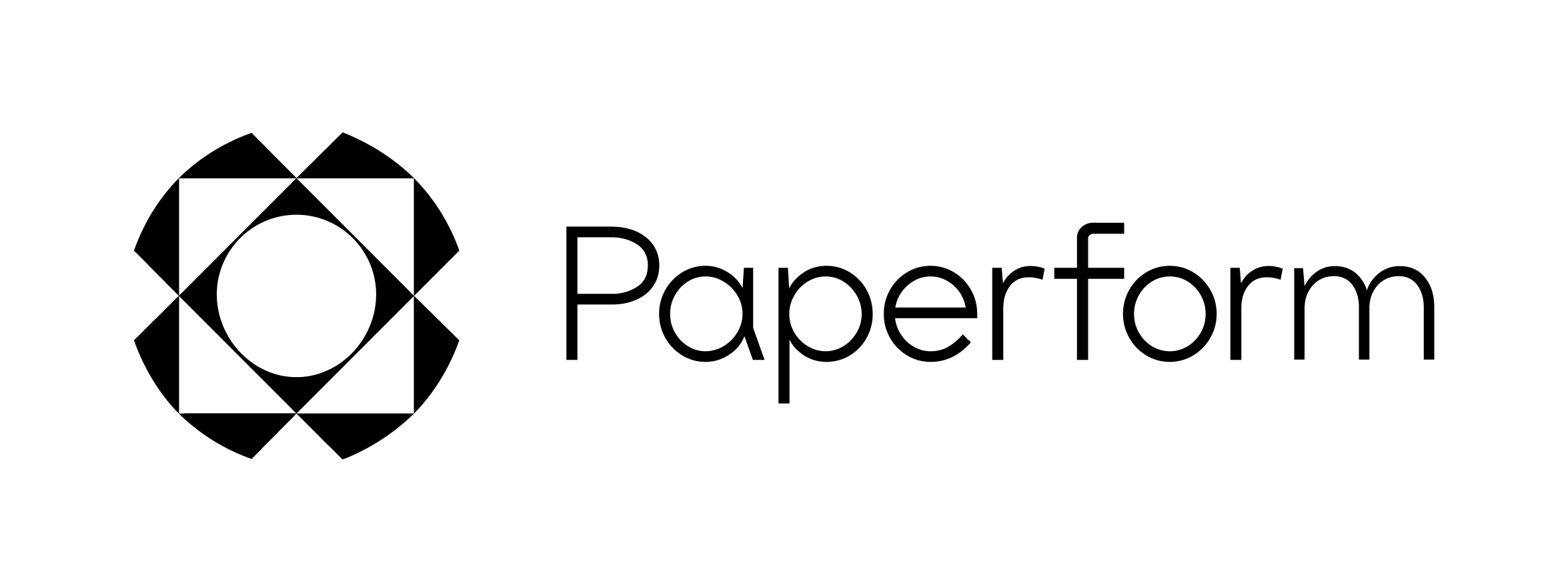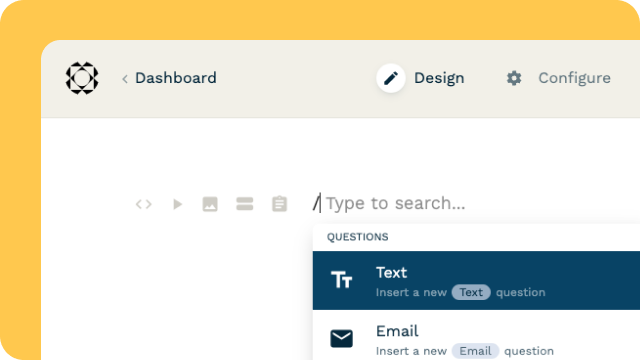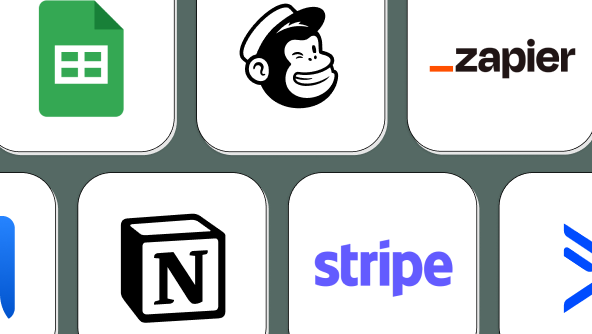
All Solutions

Explore all the solutions you can create with Paperform: surveys, quizzes, tests, payment forms, scheduling forms, and a whole lot more.
See all solutions











Connect with over 2,000 popular apps and software to improve productivity and automate workflows
See all integrationsSolutions
All Solutions

Explore all the solutions you can create with Paperform: surveys, quizzes, tests, payment forms, scheduling forms, and a whole lot more.
See all solutionsIntegrations

Connect with over 2,000 popular apps and software to improve productivity and automate workflows
See all integrationsResources
How freelance writer Kat Boogaard balances work and life

Work-Life Wisdom explores the balancing act of work and life with experts across various fields. Each installment offers a glimpse into how these professionals manage their busy schedules, maintain personal well-being, and achieve harmony between their careers and personal lives. Join us for insightful stories and practical advice that resonate with anyone striving for a more balanced life.
Freelance writer Kat Boogaard shares her journey of balancing freelance work and family responsibilities. She emphasizes work-life integration, setting boundaries, and prioritizing self-care. Kat's insights offer valuable advice for those seeking a more balanced approach to life and work.
Kat Boogaard's shift to entrepreneurship is a tale many can relate to. Feeling boxed in by the rigidity of a 9-to-5 routine, she yearned for more autonomy and room to flex her creative muscles. So, she took the plunge, leaving her steady marketing job behind to carve out her own path in the freelance writing world.
It was a bold move, but one that's led to extraordinary success. Kat overcame the challenges, self-doubt, and the curveballs of entrepreneurship to build a highly successful six-figure business. Along the way, she's become a mentor to freelance writers, generously sharing her journey, insights, and resources with those hoping to follow a similar path.
Along the way, Kat has balanced the complexities of being an entrepreneur, while embracing the joys and challenges of raising a family. Her experience offers a look at the reality of blending a career with the responsibilities of parenthood.
Kat's journey offers a relatable roadmap to work-life balance. She shows that with some smart effort and thoughtful prioritization, you really can thrive in both your career and personal life.
What does your typical day look like?
Honestly, my schedule feels like a constant experiment and work in progress. I'm always tweaking it to find the right fit and balance for me.
Right now, my full-time workdays are Monday through Wednesday. I use Thursday as a day to catch up on random tasks and life admin stuff (meal planning, laundry, and all of the other glamorous work involved in being a human) and have my two young boys (a one-year-old and an almost three-year-old) with me on Friday.
As far as a typical workday goes, I drop my boys off at daycare and make it back to my desk around 9:15am.
I'll usually kick things off by checking my emails and making my to-do list for the day. The rest of the day is spent writing, editing, responding to emails, and doing the occasional client call. I try to take at least a half-hour lunch break away from my desk to give my brain, body, and eyeballs some respite.
On most workdays, I try to wrap things up by 3:30pm or 4pm so that I have time to set things out for the morning rush the next morning, walk the dogs, start dinner, and generally set my family up for a stress-free evening.
Put simply, my days involve a balance between my actual work tasks and all of the unpaid labor involved in being an adult and a mother.
What does work-life balance mean to you?
A perfect balance almost always feels impossible. I've had days, weeks, or seasons when my career needs to take the front seat. And I've had days, weeks, or seasons when it's kicked to the backburner because of family needs.
I tend to work more toward the work-life integration philosophy. Work-life balance implies that they're two entirely separate entities that you need to try to keep even when, in reality, they're two parts of a whole.
Work is part of my life and I try to treat it accordingly. That's why even my workdays involve a hefty dose of the ""life"" stuff too.
I try to approach each day with an eye toward what I want to get done—without separating those things into separate buckets ("Oh, this is a work task!" or "I can't do that until this evening because that's a life task!").
How do you set boundaries between work and personal time?
This is something I take pretty seriously—mostly because, if I don't, I tend to wiggle my way around my own parameters. A few things I've done for myself:
- Shortening my workweek to only work Monday through Wednesday (one of the perks of being a freelancer who can set her own schedule!)
- Including a heads-up in my email signature that I only actively check and respond to emails from Monday through Wednesday (no more email anxiety!)
- Sticking to a firm "shut down" time of 4pm or before on workdays. Otherwise, my evenings feel like a mad dash to get things done before the kids get home from daycare.
- I keep a spreadsheet to log how much work I'm committing to so I don't overcommit. That's very much a work-focused strategy, but it's going to be hard to stick to healthy boundaries if you're completely overwhelmed with an unrealistic workload.
What strategies or habits help you maintain a healthy relationship between work and life?
Early on, my career was a huge part of my identity. That led to repetitive cycles of overwork and burnout.
I don't know if it was the pandemic, a raging case of burnout, or becoming a mom (or all of the above), but something snapped in me that made me realize that, while my career is important, it's not everything.
Maintaining that perspective is hard, particularly on a daily basis when it's so easy to get wrapped up in goals and opportunities.
But one of the big things that has helped me is a perspective shift. I basically ask myself: Is this going to matter at the end of my life?
It sounds morbid (and I tweeted about it a while ago) but it's a great way to stay focused on what actually matters.
How do you prioritize self-care, personal growth, and maintaining relationships while managing work responsibilities?
Having those two work-free days every week certainly helps. I'm also someone who thrives with commitments. I need something on the calendar if I'm going to stick with it.
So, I try to schedule my self-care. Whether it's a massage, dinner out with friends, or anything else, I find that having the commitment firmed up and in my calendar ensures I actually dedicate adequate time to myself.
Has technology helped you achieve a better work-life balance?
If I'm being totally honest, technology (and, specifically, the ability to be constantly connected) probably hinders work-life balance more than helps it. Oops.
That said, I do use software to efficiently manage some of my tasks and projects so I can spend less time chasing down what I need.
What advice would you give others struggling to find work-life balance?
It's not something that will eventually just happen for you—it's something you need to make happen.
I hear a lot of people talk about work-life balance as if it's something that they'll prioritize once they reach some hypothetical finish line. Once they're earning this amount. Once they get that promotion. Once they make this hire.
But when they do? The finish line just moves. If you want better balance, today's the day to get started.
Can you recommend any resources that have influenced the way you approach work and life?
I spend so much time researching work and life for my paid client work that there's not really much I consume for myself!
I really enjoyed the book Company of One by Paul Jarvis. I also love Anne Helen Petersen's Culture Study newsletter. She touches on work-life balance every now and then and her newsletters are always so insightful and research-packed.
Is there any other advice that you'd like to share?
One thing I always caution people about is that work-life balance isn't something that you "figure out" once. Often people hear about my three-day workweek and assume I've unlocked the key to perfect balance.
However, it involves hard decisions day in and day out. I have to turn down projects that sound interesting. Paychecks that would be meaningful. Ideas I'd love to pursue. All because they don't align with my priority of better balance.
It's worthwhile, but that doesn't mean it's not hard. Work-life balance isn't an achievement that leads you to, "Well, I cracked the code and now everything is perfect!" It takes work, which I've [written about extensively](Here's a similar piece I wrote for Buffer. ) in case you want more of a peak behind the curtain.
Related reading
We'll walk you through how to sign a Word doc—and offer a much better alternative.
Everything we've shipped for Paperform, Papersign, and Dubble from July to September 2024. Get acros...
Learn how to boost productivity and automate processes with this essential guide to the 13 top workf...
In this guide, Rob Press from Deputy covers seven practical ways to boost productivity and build a b...